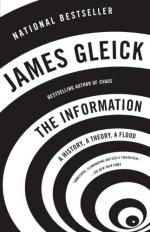
|
| Name: _________________________ | Period: ___________________ |
This quiz consists of 5 multiple choice and 5 short answer questions through Chapter 12.
Multiple Choice Questions
1. What did Shannon bring to one of his meetings?
(a) A newly developed programming language.
(b) A computer scientist.
(c) A computer.
(d) A robot.
2. Why wasn't Shannon able to teach his computer to play a game?
(a) His boss nixed the idea.
(b) He found it wasn't possible.
(c) It would take to long to teach the machine the game.
(d) He thought he would be seen as non-serious.
3. When were computers first unveiled?
(a) At the end of the Eisenhower administration.
(b) Just before the Korean War.
(c) Pre-World War II.
(d) After World War II.
4. A psychologist named George Miller noticed that people seem to be able to easily remember up to how many items at a time?
(a) Twelve.
(b) Five.
(c) Seven.
(d) Ten.
5. What time of memory is most limited?
(a) Childhood memory.
(b) Long term memory.
(c) Repressed memory.
(d) Short term memory.
Short Answer Questions
1. What did mathematician Gregory Chaitin propose about Shannon's concept of entropy as uncertainty?
2. What comment did IBM researcher Charles Bennet make about the amount of information in a message?
3. What game did Shannon plan to teach his computer to play?
4. According to Psychologist George Miller, what type of process takes place in the mind relative to the information it receives?
5. What can a computable number be compressed into?
|
This section contains 295 words (approx. 1 page at 300 words per page) |

|




